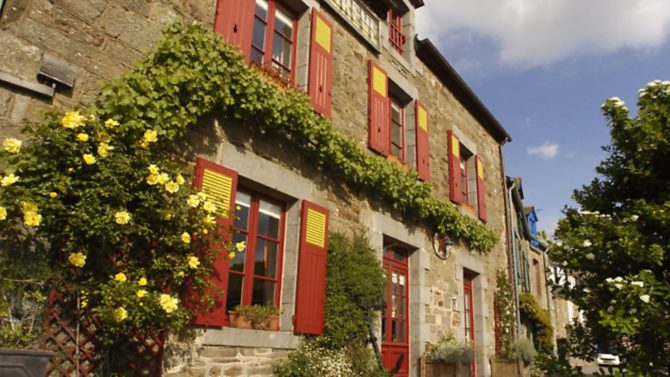Taxation on holiday homes

Alex Romaine explains how taxation works on holiday homes in France and shows how you can save money on furnished and unfurnished rental properties with some simple accounting
Any letting income generated by a property in France is always taxable in France, no matter where you are resident. With an increasing number of French properties being purchased for investment, the French tax authorities are clamping down on those who generate letting income but choose not to declare it in France, so it pays to be extremely careful.
This can, and does, lead to retrospective taxation and recovery procedures, whereby a tax assessment is issued automatically based on what the local tax office deems as being the typical profit that could be expected to be obtained from seasonal holiday lettings. The tax office will ignore the normally allowable expenditure such as mortgage interest and will add on late interest charges and penalties, irrespective of the true income and expenses undergone.
It is vitally important, therefore, that you understand your obligations and make sure that you have planned properly so that you conduct your French rentals in the most tax-efficient way possible.
DECLARING INCOME
Any income generated by a French property owned by an individual or an SCI (Société Civile Immobilière), whether they are resident in France or in the UK, and no matter where it is paid or received, is always, first and foremost, taxable in France.
If the owner is resident in the UK at the time, the income will also always be taxable in the UK. Regardless of whether the property is making a profit or a loss, French and UK tax returns have to be made.
FRENCH TAX RETURNS
There are two regimes in France under which taxable rental income is assessed:
1. Bénéfices Industriels et Commerciaux (BIC): this is applicable to income from furnished lettings and, for calculation purposes, is treated as commercial income
2. Revenus fonciers: this is applicable to income from land and unfurnished lettings
FURNISHED RENTAL INCOME
Usually, this income can be assessed under one of two methods of calculation:
1. Régime des micro-entreprises
A lot of individuals who rent out their properties opt for this regime, whereby a 20% tax will be applied to 50% of the income. In certain limited circumstances, this 50% figure may be reduced to just 29%.
The obvious disadvantage with this route is that no matter what the actual running costs of the property are, the individual will be liable for tax.
An example of the calculation is as follows: Gross income: €15,000
Taxable income: €7,500
Tax owed (at 20%): €1,500
2. Régime simplifié
This regime requires simplified accounts to be drawn up and presented each year, with tax being assessed against actual income and expenditure incurred.
Losses can be carried forward (for a maximum of 10 years) as well as excess depreciation which can be set against future profits indefinitely. As a result, an altogether more tax-efficient approach can be maintained.
Although this regime requires more bookkeeping (retaining invoices, detailed breakdown and itemisation of expenditure and income, bank reconciliations requiring separate bank accounts to run exclusively for business activity) the work does offer the chance to ensure that minimum tax in France and the UK is paid.
In any event, simplified records need to be kept in order to complete your UK self-assessment returns.
An example of how this method can be more beneficial for an individual is as follows:
Gross income: €15,000
Trading costs: €10,000
Mortgage interest: €6,000
Depreciation: €4,000
Total costs: €20,000
Loss created: (€5,000)
Tax owed is therefore €0 with €5,000 of losses to be carried into the next financial year.
As such, if you have levels of expenditure which are over 50% of your income a more tax-efficient method of accounting can be achieved and French income tax can be minimised.
UNFURNISHED RENTAL INCOME
Again, this income can be assessed under one of two methods of calculation:
1. Micro-foncier
Similar to the régime des micro-entreprises, whenever gross rental income does not exceed €15,000 micro-foncier can be adopted for income from an unfurnished property. However, rather than the 50% deduction as with the régime des micro-entreprises, in this case the percentage deduction is 30%.
An example of the calculation is as follows: Gross income: €15,000
Taxable income: €11,500
Tax owed (at 20%): €2,300
2. Revenus fonciers régime réel
Again, this method is similar to the régime simplifié as described, with the major exception that depreciation is not included in the calculations. However, when running costs are exceeding income, this is still usually the best method to apply.
The previous example used for the furnished rental income can still be applied to the unfurnished rental income, with the exception that depreciation is not used.
An example of how this method might work is as follows:
Gross income: €15,000
Trading costs: €10,000
Mortgage interest: €6,000
Total costs: €16,000
Loss created: (€1,000)
Tax owed is therefore €0 with €1,000 of losses to be carried into the next financial year.
Unlike the UK, the French tax year runs from 1 January to 31 December, with the French tax forms needing to be submitted by non-French residents to the relevant tax offices between May and June.
Alex Romaine is a paraplanner at Charles Hamer Financial Services
Tel: 01844 218956 www.charleshamer.co.uk
Share to: Facebook Twitter LinkedIn Email


